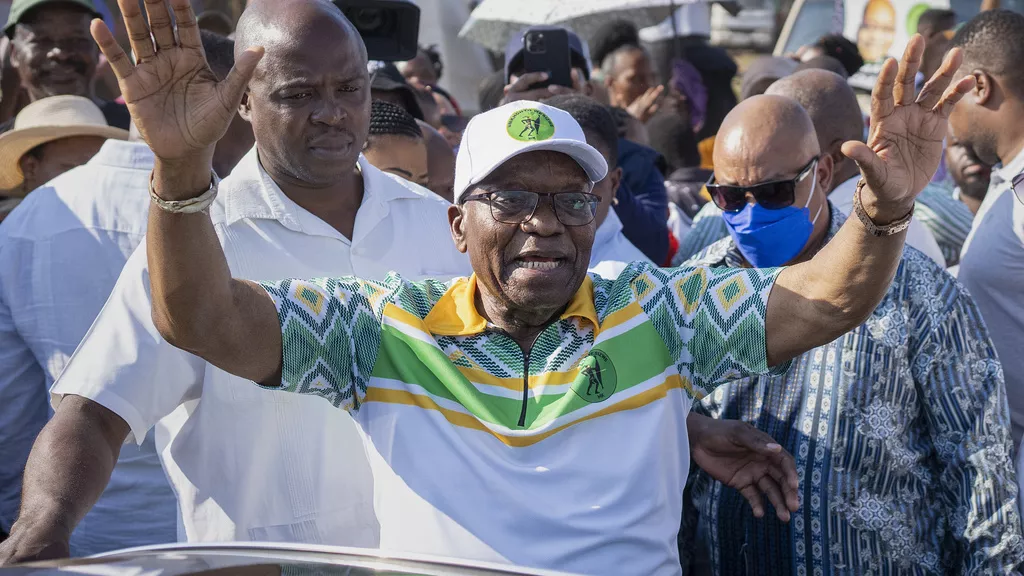Former South African President Jacob Zuma, 82, stands at a critical juncture in his political career as he faces a disciplinary hearing with the African National Congress (ANC) on Wednesday. The hearing could result in Zuma’s expulsion from the party he joined in the late 1950s when it was a liberation movement fighting against apartheid.

The controversy stems from Zuma’s decision to campaign for the recently-founded MK Party in the May 29 national elections, directly opposing the ANC he once led. This move has deepened the political feud between Zuma and his successor, President Cyril Ramaphosa, who replaced him as leader of both the party and the country in 2018.
The split of Zuma with the ANC became official in December when he announced his support for the MK Party at a press conference. Despite claiming he would retain his ANC membership, the party suspended him in January, citing attacks on its integrity.

The disciplinary hearing’s format remains uncertain, with MK officials pushing for an in-person appearance while the ANC prefers a virtual meeting. The outcome could have significant implications for South Africa’s political landscape.
Zuma’s influence was evident in the May 29 elections, where the MK Party secured a surprising 14% of the national vote in its first contest. This unexpected performance contributed to the ANC losing its majority for the first time since the end of apartheid in 1994, leading to the formation of an unprecedented multi-party coalition government.
The MK Party’s refusal to join the coalition positions it as the official opposition and the third-largest party in Parliament, which is set to open for a new term on Thursday following the election.
Zuma’s enduring popularity persists despite his ongoing legal challenges. He was sentenced to prison in 2021 for contempt of court and faces a separate corruption trial next year. These legal issues disqualified him from standing for a parliamentary seat in the recent election, although he remains the face and leader of the MK Party.
The disciplinary hearing and its potential consequences highlight the complex political dynamics in South Africa. As the country grapples with a new era of coalition politics, the outcome of Zuma’s hearing could further reshape the political landscape and influence the balance of power in the nation’s governance.
This political drama unfolds against the backdrop of South Africa’s ongoing challenges, including economic struggles and social inequalities. The repercussions of Zuma’s potential expulsion from the ANC could have far-reaching effects on the country’s political stability and future direction.
AP



